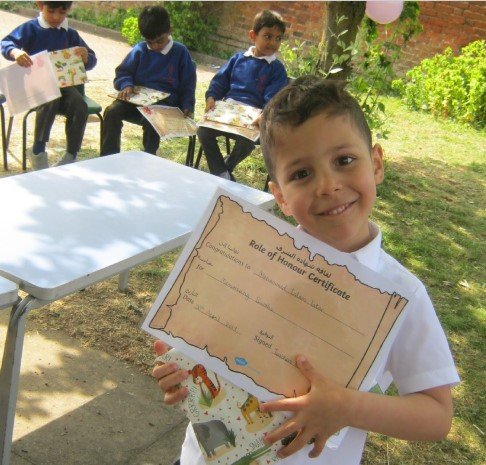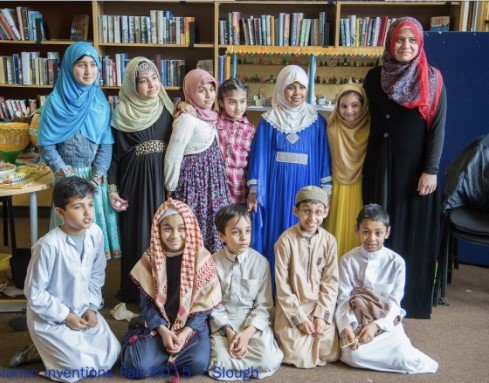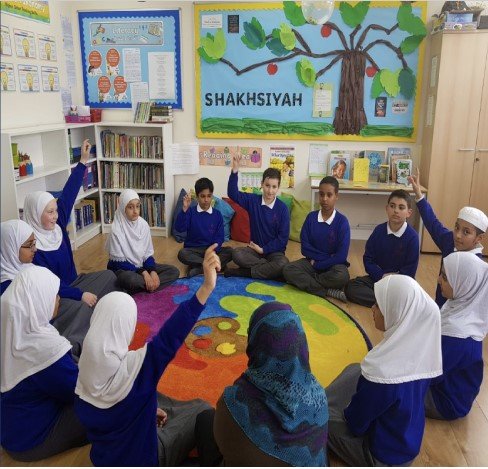At Shakhsiyah Schools we believe that learning is a lifelong journey, and extends well beyond the classroom. As a community, we are constantly seeking knowledge to grow closer to Allah (swt). The curriculum and formal classroom learning is just one element of learning in Shakhsiyah Schools. Children learn through all aspects of school life in many ways as our concept of learning is holistic tarbiyah.
Children learn through a range of experiences. Our key activities are listed below, with further information.
The principle of loving learning for the sake of Allah as growing towards Allah is the ultimate purpose of the human being.
Intention is the pillar of worship. If an action is done without intention, or has an ungodly intention behind it, it will be invalid (batil).
The most sacred acts are spoiled because of the mixed intentions behind them, while the simplest acts gain in value on account of the purely good intentions behind them.
Intention is the indispensable prerequisite for the acceptance of a deed.






The principle of developing each child’s unique personal character through dynamic parent-teacher-learner relationships generated through human-scale personalised Shakhsiyah Education.
This Islamic character will have high aspirations because of its faith and certainty and belief in the promise of Allah, and because it realises the honour attained by being a Muslim and a follower of the Prophets.
Achieving good character is done by educating people and teaching them sound beliefs and how to purify their souls in word and deed, on the basis of Islamic principles and the teachings of the Qur’an and Sunnah.
The Islamic character is one that is sound and upright; in terms of its principles, fundamentals and etiquette it is based on submission and adherence to the teachings of Islam, in obedience to Allah and His Messenger.





The principle of teachers leading by example by engaging in educational research and professional development in a constant quest for ‘ilm, ihsan and taqwa (knowledge, excellence and awareness of Allah).
One of the methods applied in Islamic education is by Qudwah because is a basic method of educating and a child learns by sees and imitates.
The method of education using Qudwah taught by the Prophet in Surah al-ahzab 21 includes courage, courage to go forward, patience and struggle.
It is hoped that Shakhsiyah teachers educate children with the qudwah al-hasanah method, so that they can become the best examples in words, deeds, and under any circumstances.





The principle of halaqah as a prophetic pedagogy that synthesises tarbiyah, ta‘lim and ta’dib (nurturing personal development, imparting knowledge and fostering decency and humaneness).
Students participate in discussions, ask questions, and voice concerns.
Meals or snacks are served to the participants




The principle of Qur’anic Arabic as the language of Islam and as essential to the revival of Muslim heritage.
Balaghah (eloquence) is different from fasahah (articulacy). The former constitutes excellence in congruity and the latter excellence in itself.




The principle of a holistic, integrated, thematic curriculum with the Halaqah curriculum at its core.
Shakhsiyah Schools endeavour to nurture the natural disposition (fitrah) of each individual child in order to develop his/her personal character (shakhsiyah) into a well rounded, confident Muslim who has sincerity in intention and steadfastness in action.
We work in partnership with parents to develop each child’s personal character enabling them to achieve their full potential in all aspects of life including academic success.
Shakhsiyah Schools aim to develop leaders who play an active part in their diverse local and global communities, serving both the Muslim community and humanity.




The principle of the individual learner (shakhs) at the heart of assessment so that assessment is formative for the learner’s growth towards Allah.
Shakhsiyah Schools endeavour to nurture the natural disposition (fitrah) of each individual child in order to develop his/her personal character (shakhsiyah) into a well rounded, confident Muslim who has sincerity in intention and steadfastness in action.
We work in partnership with parents to develop each child’s personal character enabling them to achieve their full potential in all aspects of life including academic success.
Shakhsiyah Schools aim to develop leaders who play an active part in their diverse local and global communities, serving both the Muslim community and humanity.
Thus, we prepare children for their future life in modern Britain and our global village by developing confidence in their Islamic culture and respect for other cultures, fostering harmony in our diverse communities.



